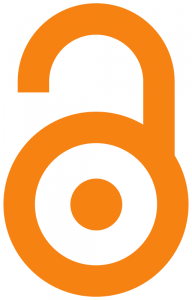Background: open access in the humanities and social sciences
- Most humanities and social sciences research output is in the form of monographs, whereas the sciences mainly show their output in the form of journal articles.
- A monograph and a journal article are very different, and therefore have different ‘needs’ in terms of open access.
- Journal articles are usually written quite quickly and have a particular structure; they are written to fulfil a specific objective and are seen as a means to an end.
- However, in the humanities the book (monograph) is the principle research output. These are written over a longer period of time and are longer and less structured.
- The production of the book is the end in itself – its objective is to start a dialogue, not necessarily to provide answers.
The Wellcome Trust is the only UK grant awarding body to have made open access mandatory for monographs.
Why not open access monographs? Academic culture
- Publication of a monograph is commonly regarded as vital for career progression in many academic disciplines.
- Early career academics who choose to publish open access might miss out on the recognition and status that comes with publishing with a perceived ‘good quality’ publisher (even though their monographs would probably gain more readers if published via open access).
This is connected to worries about the quality of open access publishing:
- What controls are in place?
- How is it different to vanity publishing?
- What happens to the peer review and editorial processes?
There is a perception that peer review is not undertaken in open access publishing with the same rigour as with traditional print monograph publishing. However, many publishers who offer open access will actually be more rigorous in their peer review process for open access publications in order to reinforce their academic credentials.
- In the last 20 years monograph sales have declined from an average of 2000 to just 200 sales per title.
- Research outputs are not read.
- The humanities are not achieving open discussion and academic debate.
A new business model is required for the monograph to survive, and for the humanities and social sciences research output to remain relevant in the digital age.
 Benefits of open access monographs
Benefits of open access monographs
Summarised by Rupert Gatti, co-founder of Open Book Publishers, Director of Studies in Economics, Trinity College, Cambridge:
- Broader readership – increase access to readers not connected with an institution..
- Allows a wider readership in terms geographical and socio-economic status due to reduced/lack of cost (subject to availability of internet).
- Reader interaction – a new peer review model at pre- and post- review.
- Opportunities for multimedia publications.
- Relate research to primary sources – links in the book can connect back to a digitised archive.
- Innovations in research and dissemination – can be done by the academic community not just commercial publishers.
- Reduced costs of text translation.
- Use in teaching: a monograph published open access is easier to use in teaching and can be more easily incorporated into teaching materials.
Business models for open access monographs
It is likely that a variety of business models will need to exist in order to support the varieties of AHSS research and the funding sources within it (Collins et al, 2015)
Gold (author payment)
- Authors (or their funders or institution) pay a fee (book processing charge – BPC) to the publisher up front for open access.
- Typically, the publisher will print on demand and see a hardback or paperback copy as well as providing the open access monograph.
Green
- Authors deposit their monograph(s) in an institutional repository.
- Embargoes are a problem – they can be very restrictive.
- Book-based outputs (e.g. novels and plays) will remain in print for many years, making it hard to define an embargo period for these types of output.
- Third party content is also an issue (as it is currently for theses).
- Concerns from authors over the version of their work that could be deposited in a repository, as things like typesetting and layout are much more important in a monograph (an end in itself) than they are for journal articles (means to ends)
Deposit of open access monographs in repositories is not very common – most monograph publishers do not have a public policy on repository deposit for books (Collins et al, 2015). Funders do not formally require researchers to deposit monographs in repositories although all encourage it.
Freemium
- Publishers make basis HTML ‘read-online’ version available online for free and libraries pay through subscription/membership for formatted ‘premium’ versions (PDFs, edoc) with additional data.
- These premium sales then fund free version. E.g., Open Editions
- In some cases the publisher will also charge authors a fee if they believe that the premium versions will only partially cover their costs, although this is usually very low or can be waived in some circumstances.
- E.g.: Bloomsbury Academic, Open Book Publishers, Open Humanities Press

Library consortia/partnerships (AKA collaborative underwriting)
- Groups of libraries pay fixed costs for collections of open access titles.
- The cost per title or collection reduces with the number of participating libraries. E.g. Knowledge Unlatched (Bass and Edwards, 2013).
- The publisher is still able to sell print and e-book editions but the libraries that have contributed to the costs will often receive a discount on these because of their membership of the consortia and contribution to the cost of publishing the open access monograph.
- There is no charge to the author.
Altruists/crowdfunding
Altruists or crowd funders pay for an open access monograph for the public benefit. This model is best for back titles, crowd sourced, e.g. Unglue.it
Selective open access
Some presses and learned societies subsidise open access monograph publishing via other activities they carry out, e.g. subscription income from a journal published by the society. A fee to the author is unlikely to be charged and the monograph will also be available for purchase in print.
Increased university press publishing
- Increasing number of new open access university presses that receive subsidies from their institutions (e.g. UCL Press).
- Subsidies may be financial, but they may also be estate costs, services in kind, in house production equipment, staff expertise, etc.
- Researchers from the home institution might not need to pay a fee to publish their book in open access, but researchers from other institutions will.
- Often have a strong relationship with the university library.
- These presses will still print on demand and sell a hardback or paperback copy in addition to making the open access version available.
New open access publishers and presses face the same challenges as any new publisher in relation to prestige – they need to build a reputation. Open access presses and publishers are trying to do this by setting up prestigious editorial boards and peer review panels.
Embargo/delayed open access
The monograph is published as open access after a pre-determined amount of time or after the publisher has recouped an agreed amount of money from sales of the print and/or e-book versions. This requires negotiation between the author and the publisher but the author does not have to pay a fee (Collins et al, 2015).
Bibliography
Bass, R. and Edwards, K. (2013) Open Access Monographs in the Humanities and Social Sciences Conference 1-2 July 2013. Unpublished.
Collins, E., Milloy, C, Stone, C. (2015) Guide to Open Access Monograph Publishing for Arts, Humanities and Social Science Researchers : Helping Researchers to Understand the Opportunities and Challenges of Publishing a Scholarly Monograph in Open Access. Edited by James Baker, Martin Eve and Ernesto Priego. Manchester: JISC.
Collins, E., Milloy, C. (2016) OPEN ACCESSPEN-UK Final Report: A Five-Year Study into Open Access Monograph Publishing in the Humanities and Social Sciences. Bristol: JISC.
Crossick, G. (2015) Monographs and Open Access: A Report to HEFCE. London: HEFCE.
Cond, A. (2016) ‘The University Press’ in Lyons, R. E., Rayner, S.J. (eds.) The Academic Book of the Future, Basingstoke: Palgrave Macmillan.
 Library
Library Claire Choong
Claire Choong 755
755



